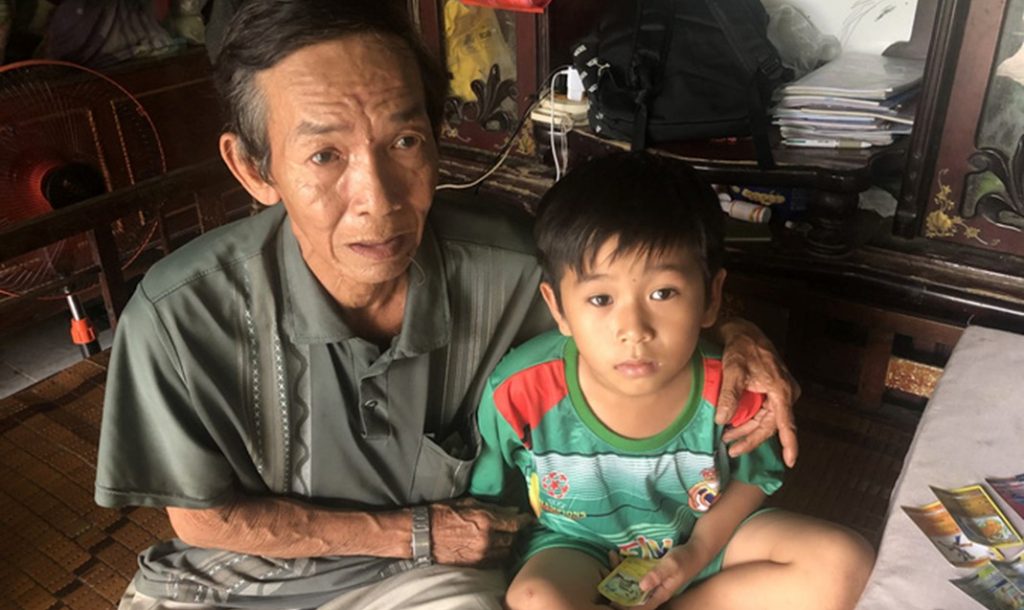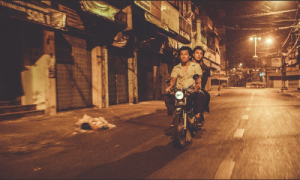While worker grievances about abuses and exploitation since 2015 have fallen on deaf ears with the renewal of a bilateral Vietnam-Saudi Arabia labour pact (2019-2024), a recent announcement from the official state media seems to appease recent bad publicity about labor export. It reveals an entrenched network of financial interests between recruitment companies and the Ministry of Foreign Affairs. The Security Agency has prosecuted some officials at the Consular Department level for accepting bribes to permit recruitment companies to organise commercial flights to bring overseas workers, who pay upwards of USD $3000 for the one-way flight and quarantine costs, to return to Vietnam. It’s not a coincidence that the corruption exposé happened after waves of social media and the UN special rapporteurs’ letter about human trafficking. Still, numerous worker complaints about Department of Overseas Labour (DOLAB) officials operating in the Vietnamese Embassy in Riyadh continue to fall on deaf ears.
Over three months have passed since a joint letter written by five special UN Rapporteurs addressing the Vietnamese government on trafficking in persons, human rights conditions, and forms of slavery and violence against women. It requests that the Vietnamese government respond to questions about the four cases of Vietnamese women taking refuge in SAKAN Social Services Centre in Riyadh, as examples of larger patterns of exploitation and physical and sexual abuse that women endure working as domestic workers in Saudi Arabia. At the time of writing, there has been no response from the Vietnamese government regarding these cases.
There are some positive legal revisions on behalf of domestic workers. Two recent pieces of legislation from Vietnam, coming out at the end of December 2021, have provided guidance on the implementation of the Revision of the Law on Contract-Based Vietnamese Overseas Workers, or Law 69/2020/QH14 which became effective on January 1, 2022.
In principle, Ministry of Labour, Invalids, and Social Affairs (MOLISA) with technical assistance from the ILO (office in Hanoi) issued some helpful stipulations which seem to respond to ongoing labour violations in Saudi Arabia. In particular, Stipulation 20 in Decree 112/2021/NĐ-CP clearly states that each recruitment company must have at least one representative (with language capability and at least one-year experience) in each host country in order to respond to workers’ needs.
This stipulation is sorely needed because thus far there has been no recruitment company’s representative in Riyadh. Only one government official from DOLAB (a unit of MOLISA) is present at the Vietnamese Embassy to respond to workers’ complaints. The clip embedded in this Vietnamese language news report exposes a worker’s desperate calls to the DOLAB office for help to no avail. She died in the hospital after these urgent calls.
To understand this complex system, one must understand three types of contract. First is the contract between the Vietnamese recruitment companies and their Saudi Arabian counterparts. Documents appended to the new legislation stipulate the terms/requirements of the labour supply contract on domestic work, childcare, landscaping and chauffeuring. Focusing on domestic work, the following stipulations, if implemented properly, would definitely address ongoing labour grievances: first, workers only work for the household of the employer whose address has been registered with the relevant Saudi agency; second, workers must be given a day off per week and a break of continuous 9 hours per work day; third, monthly salary is at least USD $350 (or USD $15/day if work is on the day off); fourth, workers must be given a clean and private place to sleep and three nutritious meals per day; fifth, the employer must pay all healthcare costs for the worker; sixth, if the two-year contract is ended before the end of term and not due to the worker’s mistake, the employer must pay for the return airfare and remit all outstanding compensation; seventh, the employer is responsible for both outgoing and return airfares for a worker who completes the two-year contract.
The second contract is between the worker and the Vietnamese recruitment company. Appendix I has an 8-page form (pp. 15-22), stipulating the rights and responsibilities of the worker and the Vietnamese recruitment company. A lack of oversight to “ensure that the worker signs a labour contract with the employer with terms that are consistent with this contract” renders this general stipulation meaningless. Nowhere in the document can I find any mechanism to hold the Saudi employer, who directly employs the worker under the Kafala system, accountable.
But the third and crucial labour contract signed between the Saudi employer and the Vietnamese domestic worker completely bypasses Vietnamese legislative oversight even in this revised law. As such, nothing changes from the five-year labour agreement signed in 2014 between the Vietnamese and Saudi Arabian governments, and an automatic renewal clause which took place in 2019. The work contract is signed between the Saudi sponsors (who are also the heads of household and employers) and the Vietnamese domestic workers (many of whom do not even have a high school diploma, only speak Vietnamese or an ethnic language, and have their passports confiscated by the employers) and witnessed by a Saudi recruitment company/office certified by the Saudi government. Eight years have passed, still the labour ministries in both countries have yet to develop a standardized form for the employment contract that protects the rights and responsibilities of workers, as stipulated in Item #8 of the bilateral labor agreement. At present, this contract is only enforced by the Saudi side, without any oversight from the Vietnamese side. Since this labor pact has been automatically renewed until 2024, it is urgent that DOLAB rectify this one-sided situation to protect the Vietnamese domestic workers. Clearly, the power relations of this contract are biased to the Saudi side at the expense of the deeply vulnerable domestic workers. The Vietnamese recruitment companies and DOLAB have no role in monitoring this crucial contract to protect their own citizens when the terms of the contract are violated and/or when the workers they send are being abused and exploited. Even with the well-intended revisions to the first two types of contracts described above, Vietnamese domestic workers continue to be completely at the mercy of their employers, whose authority goes unquestioned and unmonitored. At present, the Kafala system, with half-hearted Saudi revisions that still exclude overseas domestic workers and farmers, continues to trump the Vietnamese law governing overseas workers (Law 69/2020/QH14).
When the bilateral agreements were initially made, state newspapers were allowed to report violations. Grievances from domestic workers began to accumulate only one year after the 2014 labour pact came into effect and have been documented through to the present. Since 2015, many Vietnamese newspapers have publicised the laments and grievances of domestic workers stranded in Saudi Arabia via the complaints and petitions of family members they left behind. In 2015, journalist Lê Hữu Việt (from the Ho Chi Minh communist youth organization newspaper), revealed how family members desperately pleaded with the Vietnamese leaders to bring home their loved ones who were abused in Saudi Arabia. Việt exposed the recruitment companies for deceiving potential workers about the exploitative working and living conditions they would endure. Their dreams of upward mobility were shattered when they were regularly beaten and left to starve while working for the employers. While facing these risks and vulnerabilities, workers were left almost completely on their own to fight for their survival and to return home as soon as possible.
Up until the end of 2021, the government still tolerated some state media exposure of violations of domestic workers’ rights in Saudi Arabia and how they and their families fought back. A Labourer article exposed how workers found ways to escape abuses and how Saudi employers violated the terms of their contracts. Many articles showcased family members’ laments. One daughter sent a hand-written complaint letter to a local newspaper to demand justice for her mother, identifying the recruitment company by name. An article from the Labourer reported the laments of a father who was devastated by the sudden death of his daughter due to COVID-19 leaving behind two young children in Vietnam. Laments from husbands were exposed in a 2020 article in hopes of bringing their loved ones home. Then after the death of an underage ethnic minority Jarai woman was exposed in a 2021 article culminating in the UN special report on human trafficking in Vietnam, the government placed a gag order on the press.
Clearly the soft power of state and provincial newspapers has limits, because no more such candid exposures were published after November 2021. As COVID-19 exacerbates their sufferings in Saudi Arabia, some desperate domestic workers used social media to post their grievances and urgent calls for help. In particular, as a form of protest against the Vietnamese Embassy for neglecting the female domestic workers’ suffering, one domestic worker’s 5-minute video on Facebook in 2021, titled “To all the sisters working in Saudi Arabia and to the Vietnamese Embassy in Saudi Arabia” exposed the hardships and the anger of domestic workers, expressing frustration with lack of help from DOLAB and encouraging other domestic workers to speak up against these abuses.
While not all Saudi employers violate the terms of their contracts, with the Kafala system in place well-intentioned revisions stipulated in the most recent Vietnamese decree and circulars cannot be implemented as intended.
To be sure, as pointed out in Lam Le’s article, domestic workers from Vietnam are not alone in this struggle. Domestic workers from the Philippines and Indonesia also face the same Kafala system and have their own forms of resistance and empowerment. The Vietnamese government and civil society organizations can join forces with global activists and unionists from the Philippines and Indonesia on behalf of domestic female workers to cope with this systemic problem.
Mounting evidence shows domestic workers continue to suffer as modern-day slaves under this bilateral labour pact. To solve the root cause is to end this labour pact on domestic work as soon as possible. At the very least, the employment contract must also include a Vietnamese advocate (a professional who is not from the Vietnamese recruitment company and can speak Arabic and English) in addition to the worker, to provide oversight and to protect domestic workers’ rights. Moreover, a 24/7 phone hotline should be established in Saudi Arabia and overseen by an impartial, multilingual organisation whose members can speak multiple languages to respond to Vietnamese workers’ call for help in a timely manner.
 Facebook
Facebook  Twitter
Twitter  Soundcloud
Soundcloud  Youtube
Youtube  Rss
Rss 


